Kevin Foong:
Award Winning Feng Shui Master Singapore
Align Your Life, Home & Business Without Costly " Products " That Don’t Work
In 1997, during the Asian financial crisis, Kevin’s family fell deep into debt. Struggling to stay afloat, Kevin spent over $10,000 on Feng Shui products that promised to bring good luck: from Feng Shui ornaments to Jades and charms.
None of them worked.
That turning point led him to a true Feng Shui master in Taiwan who introduced him to the authentic, classical principles of Feng Shui without the use of any Feng Shui products. For the first time, Kevin found real Feng Shui methodologies that worked, along with clarity and direction on what needed to be done.
Inspired by that experience, Kevin made it his life’s mission to help others find the same, without being misled by expensive products or superstitions.
Today, with 13 personal mentors, 24+ years of experience, and over 35,000 clients served globally, Kevin remains committed to offering genuine Feng Shui solutions that create real, lasting change.
"I don’t believe in selling costly Feng Shui items that don’t work. I believe in real Feng Shui that transforms lives."
Kevin Foong
Will Engaging A Trusted Feng Shui Master In Singapore Truly Help You?
If you are navigating a major life decision, moving into a new home, changing careers, starting a family, or growing a business, you might feel stuck, uncertain, or out of sync.
It is not always a mindset issue.
Sometimes, it is your environment that is out of alignment.
Traditional Feng Shui works by tapping into the natural flow of energy (Qi) in your surroundings (your home, office, even the land beneath your feet) to remove energetic blockages and create harmony, clarity, and momentum.
Whether you are struggling with constant family tension, stagnant finances, or declining business results, Feng Shui can be the missing link.
Kevin Foong has helped thousands of clients experience tangible shifts in their life and work, without selling Feng Shui products that don’t work.
If you have tried everything, but still feel like something is not right, this may be the solution you didn’t know you needed.
Kevin Foong
Why Do Clients Choose Kevin Over Other Feng Shui Masters In Singapore?
With so many Feng Shui masters in Singapore, what makes Kevin Foong stand out? It is not just his decades of experience. It is his unwavering commitment to authenticity, results, and integrity.
Our Feng Shui Services
Kevin offers a full suite of classical Feng Shui and metaphysical services, each designed to bring clarity, alignment, and lasting results in your personal or professional life.
RESIDENTIAL FENG SHUI
Enhance harmony, health, and relationships in your home. Whether you want to select the perfect new home to buy or rent, or you need help with your home’s layout, Kevin Foong’s team of trained Feng Shui masters can help you with them. They will analyse your home’s Qi flow, landforms, layout, and energetic patterns to recommend specific, actionable changes without the need for purchasing numerous Feng Shui products for your home.
OFFICE & BUSINESS FENG SHUI
Optimise your workplace for growth, productivity, and prosperity. Entrepreneurs and executives can engage Kevin Foong and his team for everything from selecting the right office location to getting your office layout right for maximum flow and performance. Office and business Feng Shui services can help:
- Optimise productivity in the workplace
- Improve sales
- Reduce office politics and HR issues
BAZI READING
Understand your strengths, weaknesses, and timing cycles based on your birth data. This life blueprint helps you make aligned decisions in career, relationships, and major life moves.
DATE SELECTION FOR MAJOR EVENTS
Whether you are getting married, signing an important contract, or preparing for childbirth, Kevin selects the most auspicious dates to support success, peace, and well-being.
NAME SELECTION (ADULTS & BABIES)
Names carry energy. Kevin helps clients select powerful Chinese names that harmonise with their Bazi chart, supporting a child’s growth or an adult’s new direction.
SPECIALISED FENG SHUI SERVICES
Looking for something more specific? Kevin also offers services like:
- Caesarean Birth Date Selection
- Prosperity Live Burial
- Wedding Date Selection
- Feng Shui Masterclasses
No matter the service, Kevin’s focus is always on practical results, not superstition or fear-based advice.
RESIDENTIAL FENG SHUI
Enhance harmony, health, and relationships in your home. Whether you want to select the perfect new home to buy or rent, or you need help with your home’s layout, Kevin Foong’s team of trained Feng Shui masters can help you with them. They will analyse your home’s Qi flow, landforms, layout, and energetic patterns to recommend specific, actionable changes without the need for purchasing numerous Feng Shui products for your home.
OFFICE & BUSINESS FENG SHUI
- Optimise productivity in the workplace
- Improve sales
- Reduce office politics and HR issues
BAZI READING
Understand your strengths, weaknesses, and timing cycles based on your birth data. This life blueprint helps you make aligned decisions in career, relationships, and major life moves.
DATE SELECTION FOR MAJOR EVENTS
Whether you are getting married, signing an important contract, or preparing for childbirth, Kevin selects the most auspicious dates to support success, peace, and well-being.
NAME SELECTION (ADULTS & BABIES)
Names carry energy. Kevin helps clients select powerful Chinese names that harmonise with their Bazi chart, supporting a child’s growth or an adult’s new direction.
SPECIALISED FENG SHUI SERVICES
Looking for something more specific? Kevin also offers services like:
- Caesarean Birth Date Selection
- Prosperity Live Burial
- Wedding Date Selection
- Feng Shui Masterclasses
No matter the service, Kevin’s focus is always on practical results, not superstition or fear-based advice.
Trusted By Fortune 500 Companies Across 18 Countries:

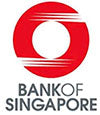











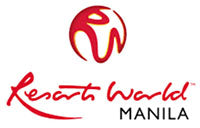






Learn How Can Feng Shui Benefit You
Hear From Some Of Our Clients In Singapore
Our Awards

As Featured In



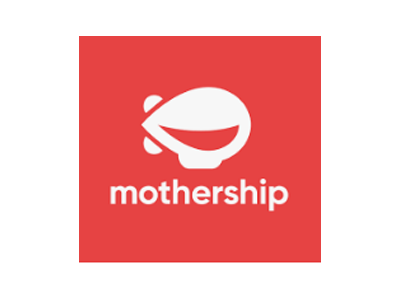




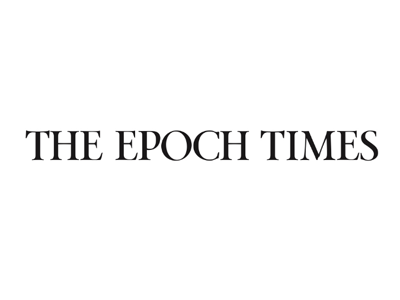
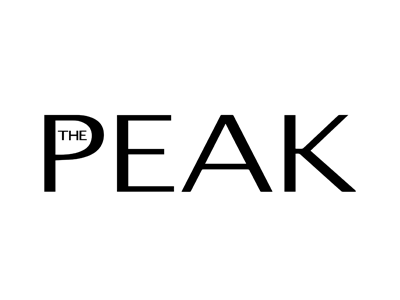
Ready To Experience the Power of Feng Shui?
Kevin’s reputation as a Feng Shui master extends far beyond Singapore. Over the past two decades, he has been trusted by senior executives, business owners, and international corporations in industries ranging from finance and real estate to healthcare and hospitality.
His corporate clients include Fortune 500 companies and globally recognised brands seeking strategic Feng Shui insights for:
- Office layout and business expansion
- Site selection and renovations
- Date selection for launches or contract signing
- Leadership transitions and crisis recovery
Whether it’s unlocking stagnant revenue or restoring team harmony, Kevin’s work is discreet, practical, and results-driven.
FAQ Around Feng Shui Services In Singaporez
What does Feng Shui mean?
Is Feng Shui real?
What does a Feng Shui audit include?
A Feng Shui consultation usually includes a Feng Shui audit. A Feng Shui audit is a professional analysis of your home or office environment. Kevin and his team evaluate:
- External landform and building orientation
- Internal room layout and Qi flow
- Furniture placement and use of space
- The Bazi (birth chart) of occupants for personalised alignment
The feng shui consultation ends with clear, actionable recommendations tailored to your specific goals: whether you are aiming to improve your health, wealth, career, or relationships.
How to use Feng Shui to decide where to put your bed?
Your bed’s placement is critical in Feng Shui. A properly placed bed can improve your sleep, relationships, and overall well-being. Here are some guidelines Kevin’s team follows:
- Position your bed with a solid wall behind it for stability
- Avoid sleeping under beams or directly in line with the door (known as the “coffin position”)
- Ensure the bed has good support, symmetry on both sides, and isn’t cramped against one wall
However, true bed placement should be personalised based on the home’s layout and your Bazi chart, which is why consulting a qualified Feng Shui master is recommended for accurate guidance.
What are some practical Feng Shui applications that can help me?
Kevin’s team uses classical systems to apply practical, tailored solutions. Common Feng Shui applications include:
- Adjusting room usage to reduce conflict and improve sleep
- Modifying layouts to unlock stagnant finances or attract career growth
- Selecting auspicious dates for life events
- Realigning office setups to increase productivity and reduce tension
Each recommendation is based on both your environment and personal energy chart, not one-size-fits-all advice.
How to choose the right Feng Shui master for your needs?
When choosing a Feng Shui master, look for:
- Clear communication and explanation of findings
- A strong foundation in classical systems (not pop-Feng Shui)
- No hard-selling of products or “quick fixes”
- Proven track record with clients
Kevin Foong stands out as a Feng Shui master in Singapore due to his integrity, global client base, 13 mentors across Asia, and a refusal to sell unnecessary Feng Shui products.
How can I tell the difference between a good Feng Shui master and a “not as credible” one?
A good Feng Shui master should:
- Ask about your goals before making recommendations
- Avoid general advice and provide personalised analysis
- Not pressure you into buying items like crystals or jades
Kevin and his team have consulted over 35,000 clients globally, using clear, data-driven methods backed by Chinese metaphysics, not superstition.
Is there a difference between Feng Shui experts and Feng Shui masters?
Yes. While both may be trained, Feng Shui masters typically have:
- Years of mentorship from established lineages
- Extensive case experience
- A deeper understanding of multiple metaphysical systems
At Kevin Foong’s Feng Shui Consultancy, every consultant is personally trained by Kevin, ensuring that you receive trustworthy, accurate, and effective Feng Shui guidance.
Who are some renowned Feng Shui Masters In Singapore?
Singapore is home to several renowned Feng Shui consultants. Each master brings a distinct philosophy, background, and area of expertise. Here is a quick comparison to help you decide who may be the best fit for your needs:
Kevin Foong: Award-Winning Feng Shui Master Singapore
With over two decades of experience and more than 35,000 clients served globally, Kevin Foong is widely regarded as one of the most trusted Feng Shui consultants in Singapore. Known for his sharp precision and no-nonsense approach, Kevin brings deep expertise across both classical and modern metaphysical systems, without resorting to superstition or pushing unnecessary products.
Trained by 13 masters across Asia, Kevin has developed a reputation for delivering real-world results through authentic Feng Shui. His clients include families, entrepreneurs, and Fortune 500 companies across 18 countries, all drawn to his commitment to accuracy, integrity, and transformation. Whether it is improving home harmony or unlocking business growth, Kevin’s insights are grounded in time-tested principles and tailored to each individual’s life path.
Kevin’s Feng Shui Methodology
- San He
- San Yuan Xuan Kong
- Landform Feng Shui
- Qi Men Dun Jia
- BaZi & Date Selection integrated for personalised precision
Kevin’s Specialisation
- Residential & Commercial Feng Shui
- Bazi Consultations
- Office & Business Feng Shui Optimisation
- Date & Name Selection
- Feng Shui Masterclasses for global students
Master Francis Leyau: Principal of Central Academy of Feng Shui (CAFS)
Master Francis Leyau is one of the most respected figures in classical Chinese metaphysics. As the direct transmitter of the San Yuan school, he inherited teachings from the renowned Grandmaster Yap Cheng Hai and continues to uphold and pass on this knowledge through the Central Academy of Feng Shui (CAFS).
A scholar and teacher at heart, Master Leyau is dedicated to preserving traditional metaphysical studies, including Flying Stars, Eight Mansions, and Xuan Kong Da Gua. He is widely regarded as a custodian of authentic Chinese Feng Shui.
Feng Shui Methodology:
- San Yuan Classical Feng Shui
- Flying Stars (Xuan Kong Fei Xing)
- Eight Mansions (Ba Zhai)
- Xuan Kong Da Gua
- Chinese metaphysics education and lineage-based teachings
Specialisation:
- Feng Shui education and masterclasses
- Classical home and office consultations
- Teacher of many professional practitioners worldwide
Master David Goh: Imperial Feng Shui Consultant & Founder of Imperial Harvest
Master David Goh is the third-generation heir to a long-standing Imperial Feng Shui lineage. This tradition began with his grandfather, Grandmaster Fu Tian Long, and was later passed down through his father, Master Long De Ren.
Today, David leads Imperial Harvest, a well-known Feng Shui consultancy in Singapore that combines traditional metaphysics with the use of customised prosperity items. These are showcased at luxury galleries in Delfi Orchard, where clients are guided on selecting items based on their Bazi charts.
Feng Shui Methodology:
- Rooted in Imperial Feng Shui lineage
- Combines Bazi analysis with personalised Feng Shui items
- Belief in activating luck through material objects and symbolism
Specialisation:
- Wealth and career enhancement for high-net-worth clients
- Imperial Feng Shui for businesses and property selection
- Luxury metaphysical collectibles for prosperity and luck.
What is the difference between authentic Feng Shui and “Imperial Feng Shui”?
Some practitioners market what they call Imperial Feng Shui, often associating it with ancient Chinese emperors and selling high-priced items said to bring luck or power.
Kevin does not support this approach.
In his view, imperial Feng Shui is a sales-driven myth, not a legitimate Feng Shui system. It is commonly used to justify selling expensive artifacts to vulnerable clients.
Kevin’s work is grounded in authentic, product-free Feng Shui that focuses on landforms, layout, orientation, and your Bazi chart, not superstition or unnecessary purchases.
